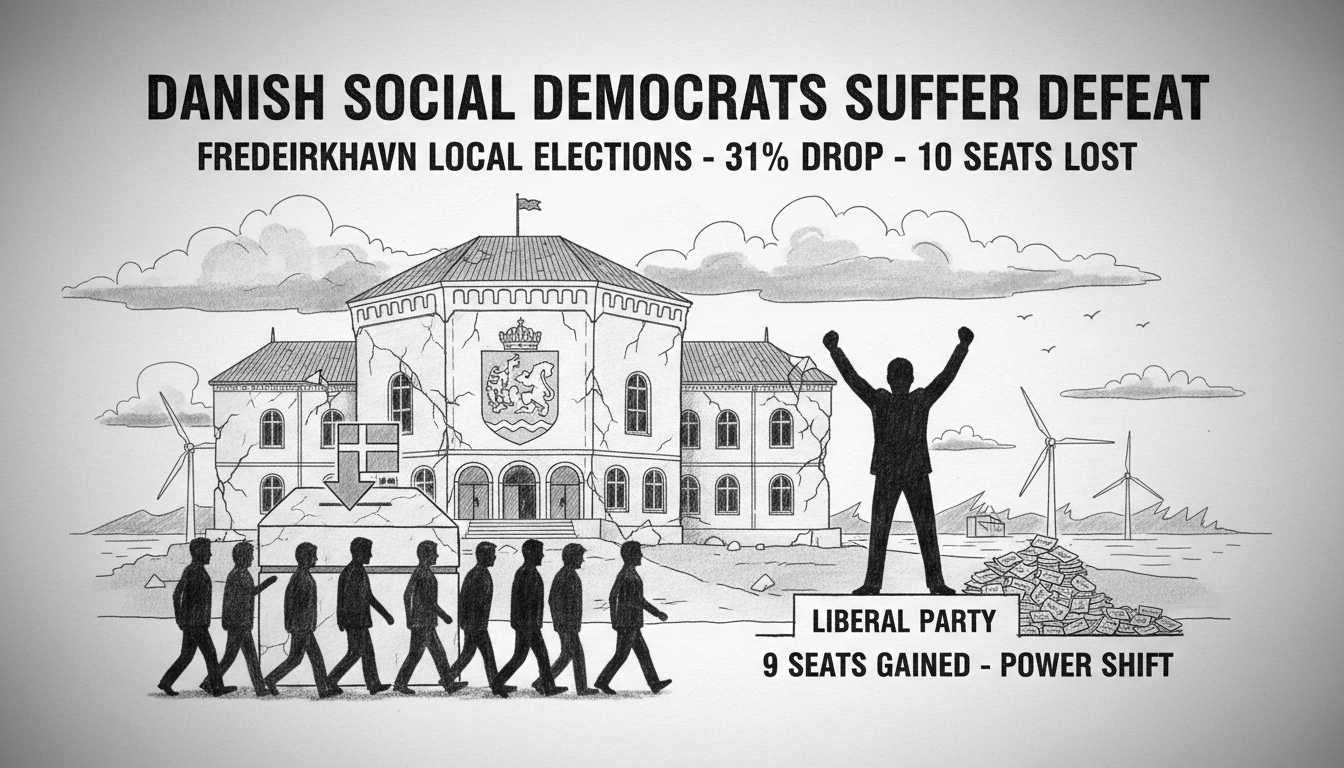The Social Democratic party faced a stunning defeat in Frederikshavn's municipal elections. Voters delivered a sharp rebuke to the governing party, which lost 31.3 percentage points and ten council seats. This represents one of the most significant local election setbacks for the party in recent Danish political history.
The Liberal Party emerged as the big winner, gaining 9.2 percentage points and securing nine additional mandates. This dramatic shift leaves the Social Democrats with only eight seats, fundamentally altering the political landscape in the North Jutland municipality.
Jon Andersen, the Liberal Party's lead candidate, expressed cautious optimism about the results. He emphasized the need for continued focus in his statement. "We must keep our nose to the grindstone, or this victory could be wasted. We haven't reached our goal yet," Andersen noted, acknowledging various coalition possibilities remain open.
The dramatic reversal marks a substantial change from the previous election cycle. In 2021, former Social Democratic mayor Birgit S. Hansen dominated the local political scene, capturing 42 percent of all votes in the municipality. Her departure from politics last year created a leadership vacuum that appears to have contributed to the party's current struggles.
Anders Brandt Sørensen, the Social Democratic mayoral candidate, acknowledged the disappointing outcome. "The results are what they are, and there's not much we can do about it now," he stated, recognizing voter dissatisfaction with the past four years.
Hansen's exit from politics followed eleven years as mayor and came amid growing concerns about political discourse. She cited the harsh tone on social media and threats from citizens as factors in her decision to leave office for a position with the Danish Municipalities Association.
This election outcome reflects broader trends in Danish local politics, where traditional party loyalties are increasingly fluid. The substantial swing in Frederikshavn suggests voters are willing to dramatically shift support based on local performance and leadership quality rather than traditional party affiliations.
The results will likely trigger intense negotiations among political parties to form a new governing coalition. With no single party holding a clear majority, compromise and coalition-building will determine Frederikshavn's political direction for the coming term. The Liberal Party's strong performance positions them as a central player in these discussions, but the fragmented results mean multiple coalition options remain possible.
Local elections in Denmark typically serve as important indicators of national political sentiment. The scale of the Social Democratic defeat in Frederikshavn may signal challenges for the party ahead of national elections, though local factors often play a dominant role in municipal voting patterns.
International observers of Nordic politics will watch how this political realignment affects policy direction in the important North Jutland region. Frederikshavn's strategic coastal location and economic significance make local governance decisions relevant beyond municipal borders.

